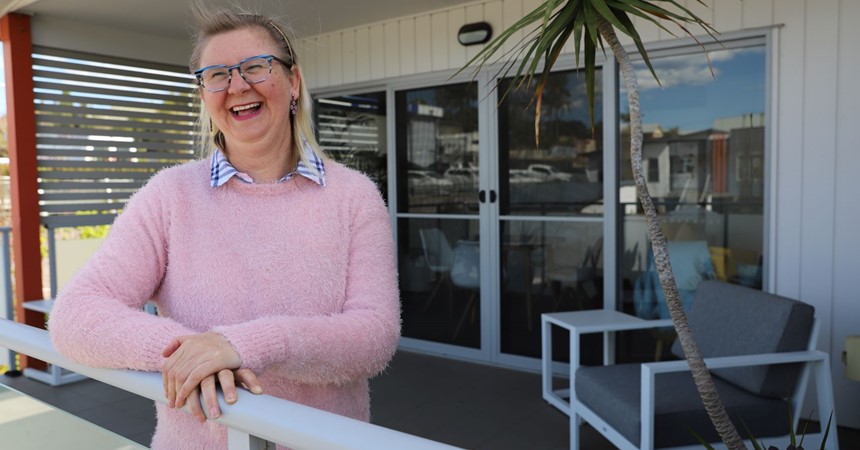“I’ve always had a permanent, stable job in retail but I still couldn’t afford to live on my own,” said the 36-year-old. “I ended up renting a townhouse with another lady because the cost of rent is so high in the private market. I really had no choice but to share.”
Anglicare’s 2020 annual rental affordability snapshot was released in April and showed that even before the coronavirus decimated the economy and sent unemployment soaring, it had become exceedingly difficult for those on minimum wage and government payments to find places to rent.
Each year, Anglicare tests private rental properties for their suitability and affordability for people on low incomes without placing them in rental stress. Of 2,887 properties listed for rent from the Central Coast, Hunter, Lake Macquarie/Newcastle and Mid Coast regions, the snapshot found almost 70 per cent were unaffordable and inappropriate for households on the minimum wage.
Maitland-Newcastle St Vincent de Paul Society data for the past two financial years highlights the consequences of persistently unaffordable housing in this region.
Vinnies found almost 20 per cent of people it assisted spent at least 60 per cent of their income on accommodation; another 20 per cent were homeless or in temporary accommodation; and 47 per cent of the people they helped needed assistance to buy food.
Fortunately, in recent years there has been an increased effort by not-for-profit organisations, utilising government funding programs, to provide more affordable housing options for low-income earners.
The Catholic Diocese of Maitland-Newcastle signed up to the federal and state government-backed national rental affordability scheme in 2014. The program enabled the Diocese to construct new affordable housing complexes at Mayfield, Booragul and Mount Hutton resulting in 65 units. Tenants receive a 20 per cent discount off the market rent and each complex currently has a 100 per cent occupancy rate.
Ms Storey has been a tenant of the Mayfield complex for 18 months and said life had become much easier since she moved in.
“I now pay the same amount for my own unit as I paid to share with someone else in the private market,” she said. “I never worry about the cost of rent anymore and it’s a really great place to live with a lovely community of people.”
Diocese of Maitland-Newcastle CEO Sean Scanlon said the prohibitive cost of housing had become an obvious problem in the community and it was important the Church did something substantial to respond to the issue.
“Housing is about protecting people’s dignity,” he said. “Secure and appropriate shelter allows people to live a life where they can go to work, their children can be safe, and they are integrated with society and not marginalised.”
“The subsidised rent provided by the Diocese means people have more money to feed their children, pay for education, and address their health needs.”
St Vincent de Paul Housing CEO Brian Murnane said 60,000 applicants were currently on the waiting list for social housing in NSW, including families with young children.
“Demand is growing rapidly due to coronavirus,” he said. “As part of Vinnies’ arrangement with the NSW government, 500 social and affordable housing properties are being developed across 12 sites throughout the state.”
Two of those sites are in the Hunter, a 17-unit complex in Maitland unveiled last month, and a 94-unit complex at Cardiff still under construction.
Mr Murnane said affordable housing unit tenants receive a 25 per cent discount on market rent under this program.
“Often the people who keep a suburb and a community functioning, such as garbage collectors, council work crews, café and retail employees, can’t afford to live where they work and face huge daily commutes,” he said.
“This program keeps work and home closer together and makes an enormous difference to their quality of life.”
Despite these increases in social and affordable housing stock, the St Vincent de Paul Society National Council believes far more needs to be done. It has called on the federal government to establish a social housing fund of $10 billion to address what it claims is a chronic shortage of safe, affordable housing in Australia.
Speaking at the start of National Homelessness Week last month, Vinnies national CEO Toby O’Connor said a National Housing Strategy is needed to address the shortfall of more than 400,000 dwellings nationally.
As outlined in Laudato si', Pope Francis has long advocated for all nations to prioritise providing inexpensive and suitable housing for the world’s poorest people. We continue to call on the Australian government to increase its support to allow more people, like Jess, access to affordable and suitable housing.






















































































